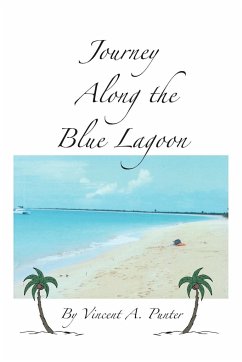Journey Along the Blue Lagoon" tells the story of author Vincent Punter's days growing up on the little British Colonial island of Barbuda, the sister island of Antigua, in the Caribbean during the 1950s and '60s, a period of great transition on the island. As a boy, he witnessed the rapid changes his island and its people underwent in their move toward modernization: the graduation from horse and cart to motorized transportation; from kerosene oil lamps to electricity; from news of the outside world entering only via transistor radio to watching it all on television. "Journey Along the Blue Lagoon" captures the struggles his family endured to survive in an economy of little opportunity, and how it was all held together somehow by the strength and fortitude of his mother, Emily, an enterprising soul who scratched out ways - from vending crabs, homegrown vegetables and handmade charcoal, to making brooms - to support her four children. Although there were always money worries, the island's culture provided plenty of communal traditions that buoyed the spirits and celebrated life on the little paradise inhabitants called home, which they embraced with joy. Music always accompanied the picnics, cricket matches, boat races, dances and festivals, often held under the full, red glowing moon of the Caribbean's star-strewn sky. But "progress" was not gained without its price. Mr. Punter allows the reader to decide whether Barbuda was better off in its old-fashioned, backward ways or stepping into the modern world. What is clear, however, is that his memories of golden boyhood days, in a small village of less than 2,000, have left an indelible mark on his heart.
Bitte wählen Sie Ihr Anliegen aus.
Rechnungen
Retourenschein anfordern
Bestellstatus
Storno







